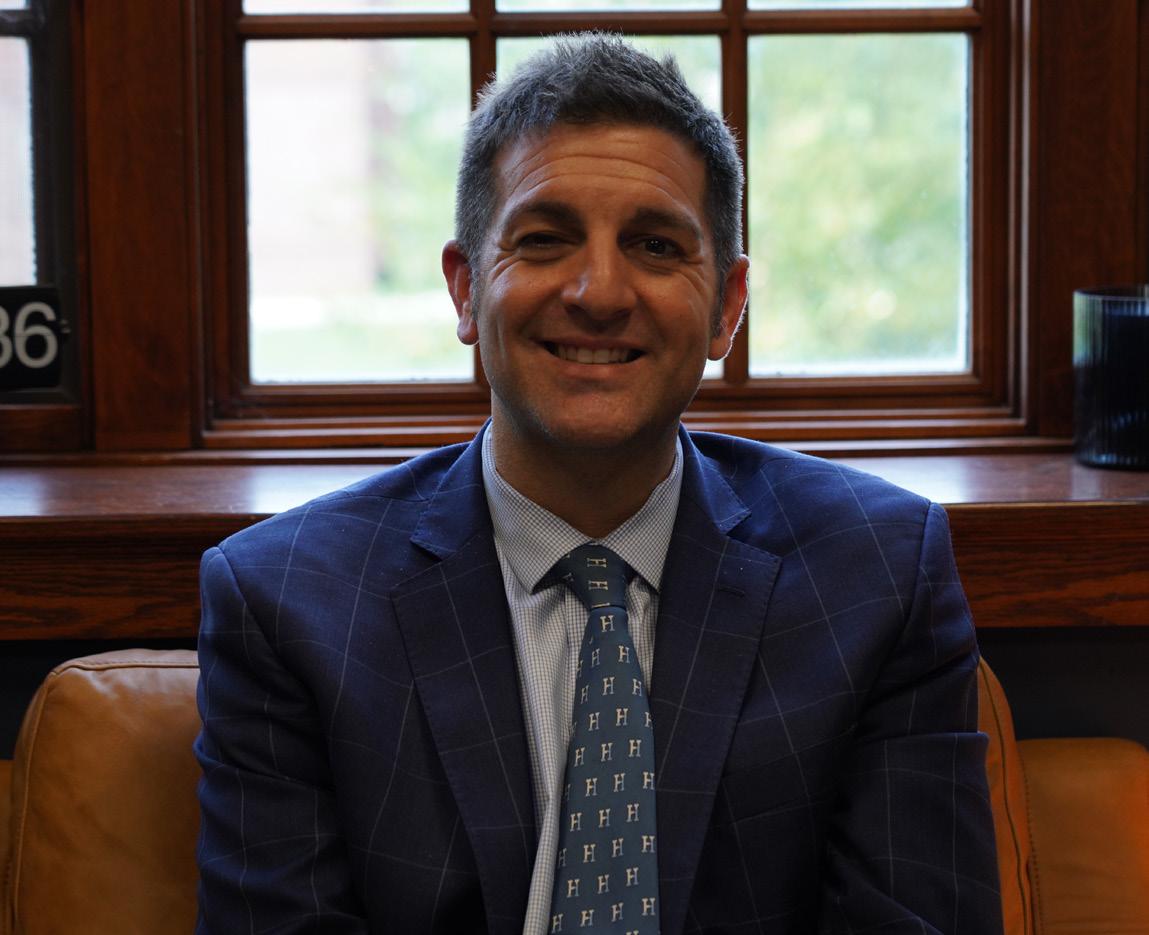THE HILL NEWS
VERBA VOLANT, SCRIPTA MANENT

VERBA VOLANT, SCRIPTA MANENT
By KARA FINLEY ’26 STAFF WRITER
Tuesday, Nov. 5, will mark the 60th presidential election in the United States. Hill’s campus is buzzing with anticipation from eligible and non-eligible voters alike.
Hill has been trying to prepare students for the upcoming election through voter registration for those old enough and education on the democratic process for all. Eric Khong, Dean of Equity and Inclusion, has been involved in the preparations for election day. Khong has experience working with groups that promote expanding voting access, such as Advancing Justice Atlanta. He has worked with Hill to prepare voter registration drives and town halls. These meetings will not only help eligible students register to vote, but also educate them about the democratic process.
“These town halls will be open to the community and cover topics like civil dialogue, watching your media diet, and other frequently asked questions about our democratic process,” Khong said.
On Sept. 17 and Sept. 19, voter registration booths were set up in the Milhiser Dining Hall and student center, respectively. Philip Kim ’25 was one of the students who helped at the booth. Kim helped eligible register at Hill to vote in the upcoming election and educated ineligible students on the importance of voting. Kim’s main goal was to educate students and encourage those able to vote.
Kim said, “Some people may not see the importance of voting, or the extent of the impact of one measly vote, but to represent that ‘voting is a civic duty’. I think that statement gets overlooked at times, but I wanted to help educate others on the idea that every vote counts and reflects your voice in the U.S. democracy.”
Hill will assist eligible voters in getting to the polls and help them register to vote. Specific details are still being worked out, but Khong said, “We hope to host a series of ‘group walks’ to the Rickett Center with a few faculty who can facilitate voting.”
“I wanted to help educate others on the idea that every vote counts and re- flects your voice in the U.S. —Philipdemocracy.” Kim ’25
Though a large portion of students cannot vote this year, non-eligible voters have felt the impact made on campus as we approach election day.
Emma Murray ’27, says, “Hill has made significant strides towards helping students get registered to vote.”
Even though she is ineligible to vote in the upcoming election, Murray said she was “excited to vote in whatever election I can because I want to be able to influence the direction the country I live in takes.”
When asked how Hill has handled the upcoming election, Jill Patel ’27 said there was room for improvement regarding education. Her primary concern is a lack of education about this year’s candidates.
Patel said that she would have liked “a meeting or an email that explains it” and that “there should also be a day in history or some similar class that talks about the election.” She also said that her lack of understanding about politics and the democratic system is why she is not looking forward to voting in the future. Patel says she would still vote when given the opportunity, but “I don’t know what to look for in a candidate.”

The Hill News conducted a survey of 150 students from Oct. 9 to Oct. 16, collecting Hill students opinion of the presidential and Pennsylvania elections. It asked three main questions: which party do you most strongly identify with; if you were voting, who would you support in this year’s presidential election; and if you were voting, who would you support in the Pennsylvania senator race?
The polls described a deeply divided student body. The Democratic Party led with 40.9%, followed by 30.4% of the students’ selection of other or neither candidate, and Republican Party accounted for 29.1% of the support from the student body.
The divide widened when students were asked to pick their preferred candidate. Kamala Harris dominated student polls with 46.7%, followed by 26.7% for Donald Trump. Meanwhile, nearly a quarter of students — 24% — selected undecided, and finally a 2.7% student choice for other candidates.
The student polls of the Pennsylvania senator race reflected, perhaps, the largest division among students. The largest selection was for neither candidate, which garnered 49.3% of the student vote. Democrat Bob Casey received the second-largest share with 30%, and Republican Dave McCormick has the smallest selection percentage.
Though Democrats triumphed in student polls, many students still believed that the Democratic and Republican parties have become too divided and do not reflect the political beliefs of the young.
“I feel like both parties are so polarized and half of the parties’ identities is being opposite of the other party,” Anaika Bandi ’27 said.
Bandi also explained the choice of neither Bob Casey nor Dave McCormick for the Pennsylvania senator election, stating that though many young voters are familiar with the presidential election, that knowledge does not comprehensively extend to down-ballot elections.
“I am not educated enough to make a decision,” Bandi said.
Many students expressed beliefs that the Democratic and Republican parties have become too divided and do not reflect the political beliefs of the young.
“I feel like both parties are so polarized and half of the parties’ identities is being opposite of the other party,” Bandi ’27 said.
“None of the candidates have taken any positions that I feel strongly on, at least not that I know of,” Oluwafifehanmi Akinyanmi ’25 said.
Other students found that they do not entirely support either Donald Trump or Kamala Harris.
“My reason for not liking Trump is because I genuinely think he is a hypocrite,” Lucy Lyu ’25 said. “For Kamala Harris, even though I support the Democratic Party, she has not done much as a current vice president, and I do not think she is going to lead the country to any success in the future.”
The undecided vote also reflected the large share of international students at Hill. Tonsun Kovitchindachai ’25 said that he “cannot vote in America,” so he has less knowledge about the political parties.
Despite uncertainties, the eligible student body — and the country — head to the real polls on Nov. 5 to determine the future of the country. That future, and the opportunity to vote, lies in the hands of students.
“Even if it can seem inconvenient, voting was first created to reflect the values of everyone.” Sienna Licata ’25 said.
Abigail Rice ’26 contributed to this article

Which party do you most strongly identify with?

If you were voting in this year’s presidential election, who would you support?
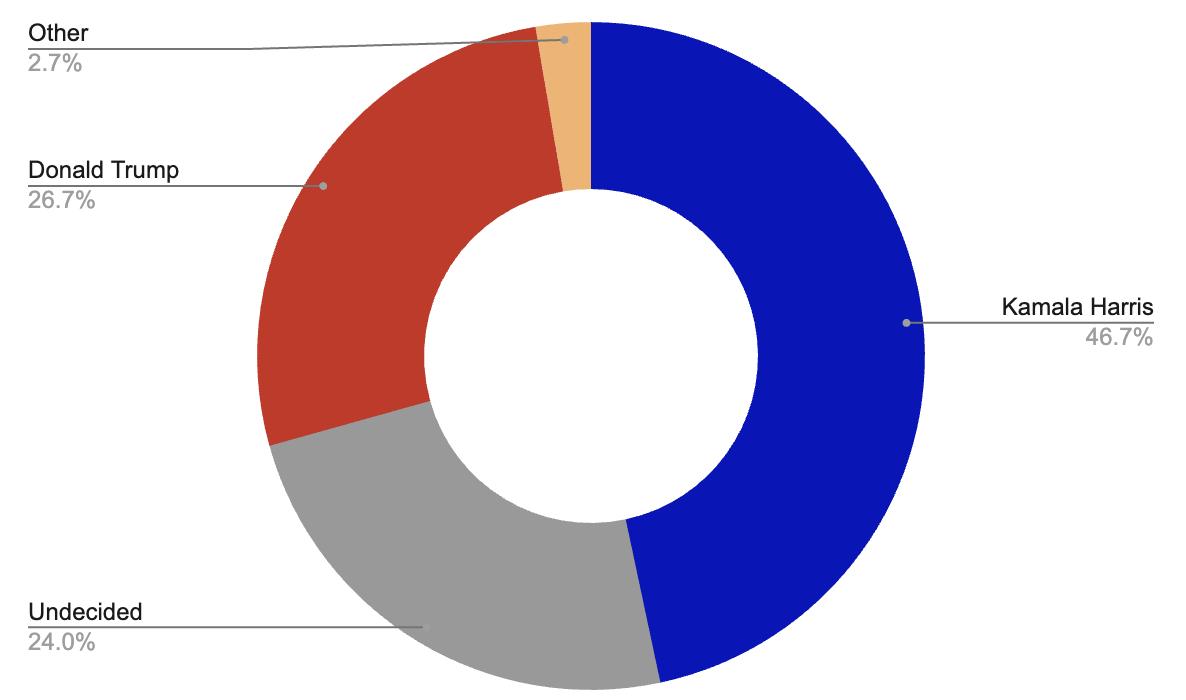
If you were voting in this year’s Pennsylvania senator race, who would you support?
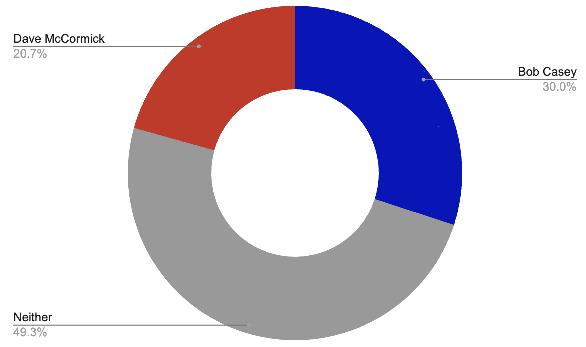
Editors’ Note:
By EMERSON LEGER ’25 & KIERN LIM ’25
EDITORS-IN-CHIEF
For Issue 2, we believed it to be important to cover issues related to politics due to the upcoming Presidential election. In this issue, we hope to showcase the diverse opinions and positions held by the Hill community in issues related to the election, especially considering how polarizing the election cycle has been. Additionally, as displayed in the infographic, 150 Hill students participated in the poll which asked them about their political affiliations and topics they found to be the most pressing and relevant in this election cycle.


By ABIGAIL RICE ’26
SOCIAL MEDIA MANAGER
The Hill School had one of the best high school Arabic programs for a while, and even Lawrenceville has never achieved that. For the past few years, though, the Arabic program has undergone multiple trials and tribulations.
“In the last five years, we have had fewer students taking the class. We have had to combine some classes and reduce the number of sections, to the point that we, sometimes combined different levels, not just like honors and non-honors,” Christopher DeLucia, Hebert B. Finnegan Memorial Chair of the World Language Department states. “I mean, of course, we had COVID online, and then we had another period where we had an online teacher for a short period of time after the founder of the program, Mr. Benziane, left in 2021,” he continues.
As a result, the Arabic program has shrunk in the past years, and this has caused worries for both the language department and students taking Arabic. In fact, this year Hill did not enroll any level one Arabic students, but the language department has a goal of restarting it next year.
The reason for the temporary cancellation of Arabic 1, as DeLucia describes, is because of the new teacher, Sharrie Saleh, Adjunct Instructor of Arabic of the World Language Department, is a part-time teacher. “When we hire somebody part time, usually we have to limit them to two classes.”
Despite only being part time, there are three main reasons why Saleh chose Hill. “The first reason is my husband, of course. And for my second reason, my daughter was accepted here. So, I have two reasons,” Saleh mentioned. “And the third reason, and it is a very important one: the students and the staff. Everyone here is a kind of family. You never feel alone here. That is very important, especially for someone not from the US. They are just looking for a family. And here I feel I am with my family. And of course, the students, I love them,” she adds, “and I want to give them something. So, every Monday here in my class, I love to cook some traditional Egyptian food for my students.”
Sage Garraway ’26, a student in the Arabic 3 class, is hoping for a better year in Arabic despite the unpredict-
ability she has faced the past two years.
“There were a lot of different semesters of switching teachers, and my relationship with my one teacher that I had for one and a half to two years, was really good. And then, after that, we had a different teacher,” she shared. “Now, I have a new teacher, and I love her. So, hopefully, you know, it goes well for the next two years.”
Shinyu Zhang ’27, who is currently taking Arabic 2, shares the hope for a stable Arabic program. “I will probably try to keep learning Arabic until my senior year because I am really interested in taking Arabic,” Zhang said. “It would be pretty cool just to tell people that you know how to speak Arabic.”
“The school should not cut Arabic because it is such a unique language to offer. I heard Hill used to have more languages like German, but they removed it because of a lack of students. I understand it is hard to find teachers or even students who want to learn Arabic, but this is one of the only special parts of Hill.”
— Chelsea Lee ’27 , Arabic 2 student
As news of the cancellation of Arabic 1 for the 2024-2025 school year began to spread among the students taking Arabic, some became worried about a full fade out of the program. Chelsea Lee ’27, an Arabic 2 student, expressed her worry on the subject. “The school should not cut Arabic because it is such a unique language to offer. I heard Hill used to have more languages like German, but they removed it because of a lack of students. I understand it is hard to find teachers or even students who want to learn Arabic, but this is one of the only special parts of Hill.”
Saleh does not plan to let that happen. With new ideas, she hopes to expand her students’ love for Arabic. “I want to concentrate on putting more Egyptian vocabulary because it’s a common Arabic dialect in the Middle East. Everyone in the Middle East can understand Egyptian Arabic. Because it’s not difficult,” Saleh communicates. “I want the students to learn how to communicate with Arab peo-
ple — how they can understand them. If one of these days, they go abroad or go to any country in the Middle East, they can understand them. They can go buy something by themselves. So, I want to achieve these goals.”
Hill has been working from multiple aspects and exploring all possible routes to boost the program. “I feel pretty confident though that this year will go well. But, you know, we need support from a lot of people. You know, administratively, in the community, in our marketing services,” DeLucia says, “Everybody has to be on board if we are going to be successful with it.”
Not only has the school made strides, but so have the students. Lee touched on her work outside of the classroom.
“I made the Arabic club to spread the language and culture because it is ‘dying’ at Hill,” Lee stated in a text. “One of the reasons is because I do not want the lan-
guage to be removed. I hope more people will join, and hopefully they are interested. DeLucia also describes all the possible scholarships and external programs available for language development which would hopefully encourage students to further their interest and study of the language. He referenced the National Security Language Initiative for Youth program, saying that it is “a program funded by the US government that allows students to study Chinese, Arabic, Korean, and several other languages which are considered critical languages.”
DeLucia dives deeper into the programs’ choices describing, “That is, not too many people are studying them, and geopolitically, they are very important.”
“We have to see how this year goes. So, this year is very much a year of not only concern but also of hope,” DeLucia concludes.

By SIENNA LICATA ’25 STAFF WRITER
On September 21, students were dancing away the cloudy days at the Warner Center during The Hill School’s first DEI block party, an event promoting the inclusivity of the whole community.
The first of its kind, the event featured Spanish, Korean, and other cultural food, including make-your -own boba. Movies were featured inside the Warner Center along with make-your-own lego flowers, and string lights were hung over the grass filled with fun yard games such as spike ball and cornhole. Music of all languages was played as everyone came together to work on an art wall, painting handprints with their countries’ respective flags and greetings in their home languages, sharing the messages of peace, creative art, culture and the rich identities that make Hill what it is. According to Eric Khong, the new Dean of Diversity, Equity, and Inclusion, the wall will be put up around the campus in various spaces, adding a touch of student voice and culture to Hill. “The original idea for the block party was that the DEI Student Council and I thought that while the Warner Center was a space that was important for people that knew about it, there were a lot of people in the community that didn’t know about it,” Khong explained. “ I would always get people asking ‘is this the facilities?’[or]‘is this where we pick up packages?’, and we thought it would be really nice to have an opening kickoff party so that people that maybe were never familiar with the space or never
felt comfortable coming in could.”
“The idea of this is instead of just coming together, there’s documentation we can put: something that makes us feel like this is Hill...we just wanted a space where everyone’s voice is visible.”
Alyssa Diwale ‘25, DEI Co-Chair
Hill DEI Co-Chairs Nicole Leonardo ‘25 agreed stating that “The main purpose [of the block party was] to tell everyone we’re here and this is an open space for everyone to come by.” Not only this, the art wall also introduced a landmark permanence of this event. “The idea of this is instead of just coming together, there’s documentation we can put: something that makes us feel like this is Hill...we just wanted a space where everyone’s voice is visible,” Alyssa Diwale ‘25 mentioned.
“The original idea for the block party was that the DEI Student Council and I thought that while the Warner Center was a space that was important for people that knew about it, there were a lot of people in the community that didn’t know about it”
—Eric Khong, Dean of Diversity, Equity , and Inclusion
When we think of ‘Hillness’, we usually think about all of the ways we come together in our similarities, but this event reminded us that Hill is special because we all bring our own backgrounds and identities to the table. The foundation of ‘Hillness’ is all the ways we are different—how we show each other new perspectives in order to build a community of understanding and diversity. Having an event that celebrated all of the Hill community, introduc-
ing many to the Warner Center and what it promotes, showing the very reason we have a Dean of DEI and a student council in the first place. Adam Yao ‘26, HASOGI co-president who was in attendance at the event, said “I think that it’s great seeing all these people from different backgrounds coming together and celebrating the cultures, and I’m very proud of how inclusive and embracing we are of everyone around us.”.
Hill cares about coming together
and not just respecting, but celebrating, all of the ways we are unique, and this block party was a great step towards future events of the sort that allow everyone to come and meet new friends, play fun yard games, eat good food, watch movies, and share their art. It was also a great step in introducing Khong as our new Dean of Diversity, Equity, and Inclusion , who seems more than content to further integrate DEI into Hill’s campus.

By RYAN QIU ’26
FEATURES EDITOR
Late September, Category 4 tropical cyclone Hurricane Helene unleashed destruction on the southeastern United States. On Sep. 26, Helene made landfall near Perry, Florida, becoming the strongest storm to have ever hit North Florida’s Big Bend region. Over the next several days, the hurricane left a devastating trail across multiple states, leaving many communities struggling with rebuilding efforts.
Helene began forming on Sept. 22. By Sept. 24, it had consolidated into a tropical storm as it moved across the Gulf of Mexico. Within 48 hours, the National Hurricane Center began issuing warnings across Florida and Georgia of a Category 4 hurricane, with winds exceeding 140 mph. The hurricane weakened along its path through Georgia, North Carolina, South Carolina, Virginia and Tennessee, where it dissipated on Sept. 29. Governors in aforesaid states declared states of emergency in response. Over 60 counties in Florida were put under evacuation orders. Schools, airports, and public services were shut down as millions were evacuated from low-lying areas. Other impacted services include state parks, the SpaceX Crew-9 mission, Mickey’s NotSo-Scary Halloween Party, Walt Disney World, and many universities in the Florida region.
As of October, the official death toll of Hurricane Helene has exceeded 230, with over 600
people reported missing and still unaccounted for, making Helene one of the deadliest hurricanes in American history. Florida suffered the brunt of the destruction, as floods and winds devastated regional infrastructure. Extensive loss of infrastructure led to power outages across several states, affecting at least 4 million people according to the Omaha Public Power District.
Farther inland, states including Georgia and the Carolinas experienced extreme flooding and tornadoes. Atlanta saw its highest rainfall total in over a century, which led to severe urban flooding that trapped residents in their homes and vehicles. North Carolina currently accounts for the highest number amongst total deaths caused by the hurricane, with an estimated 91 dead and 200 missing. Tennessee experienced extreme flooding and power outages despite the storm having weakened along its course, as 85 people remain missing as of Oct. 1.
Estimates place the total damage from Hurricane Helene at a staggering $38.5 billion, with Florida accounting for over $20 billion. Key supply chains of fuel and food were disrupted, and power loss and restoration costs have been extremely expensive. Total economic loss is estimated by AccuWeather to cost over $225 billion, making Helene one of the costliest hurricanes in American history.
Recovery has been an ongoing effort. As of Oct. 1, the Federal Emergency Management Agency (FEMA) has distributed 6.5 million liters of water and 7.1 million meals in affected areas. The Omaha Public Pow-

er District has been steadily aiding in recovering lost power grids and SpaceX has reported over 500 donated Starlink terminals.
Additionally, major sports leagues such as the NFL, MLB, NHL and NBA have donated millions towards relief.
In the aftermath of Hurricane Helene, tensions flare as presidential candidates Donald Trump and Kamala Harris become central figures in debates over the government’s response to the disaster. Trump was first to criticize the Biden Administration for inadequate and inefficient allocation of funds, additionally accusing President Biden of slow-
By HARPER LATHAM ’26 STAFF WRITER
Administrations usually ask their districts to provide textbooks, pens, and calculators; however, several school supply lists have added baskets, plastic organizers, and lock boxes. Pottsgrove High School recently instituted a stringent cellphone policy requiring students to surrender their cell phones at the start of each class.
Five minutes outside campus, Pottsgrove High School students find themselves just as restricted as Hill students with a new cell phone policy. Hill implemented a stricter phone policy this school year that banned use during the academic day in most areas.
“Students are expected to have their cell phones and other personal electronic devices out of sight, silenced, not visible, or in use in all learning areas,” the Pottsgrove handbook states. Cece Hires, a student at Pottsgrove High School and class Vice President, describes the regulation shift from lenient to strict. Before, students were expected to respect teachers’ time and be responsible with their devices as they wished. Now, all cellphone privileges have been revoked in any academic settings, with the assumption that students are better able to focus if their devices are removed from sight. With such intense regulation, students have mixed reactions to a new way of learning.
“I think it is more focused from doing that, but some kids are just going on their laptops and playing ‘Cool Math Games’ instead of lis tening,” Hires said. “I think it’s smart not to have it during instruction. I think that is fair.”
Classrooms benefit significantly from higher student participation due to the limited number of distractions in class. However, with such an em phasis on building a more engaging environment for students in the 2024-2025 school year, students wonder what triggered such a significant shift. Hires believed the leading cause for the school wide ban lies in the hands of their Keystone scores.
“We wanted to do something that ties into the purpose of this school,” school director Jay Strunk explained. As students increasingly relied on their phones for explanation, communication, and stimula tion, Strunk believed students needed to be more pre pared for life, which required increased engagement.
“I don’t think it’s a single issue; both are true. We want to be the best school we can be,” Strunk said. He believed that all students can achieve aca demic excellence, and the school strives to correct specific elements like focus and quality of teaching to create higher performance beyond numbers.
Strunk compared a classroom environment like driving a car, where certain things need utmost attention to operate appropriately. Unlike texting and driving, the school board didn’t want to focus on penalizing students for cell phone usage but instead on educating how to use these advanced tools responsibly.
“It’s not about what we’re doing to students; it is about the world.” Strunk said, “It’s not limited to
ness to react despite contentions otherwise.
Similarly, Vice President Kamala Harris was accused by Florida Governor Ron DeSantis of being first to politicize the storm. Harris has pushed back claims of partisanship in governmental aid and deemed the Florida Governor “utterly irresponsible” for political banter amidst the ongoing crisis. As the nation continues grappling with recovery, many are struggling to rebuild their communities. Beyond political finger-pointing, resilient governmental responses are effectively minimizing and relieving the harms dealt by Hurricane Helene.
By ETHAN LUO ’26 STAFF WRITER
ILLUSTRATION BY CHELSEA LEE ‘27
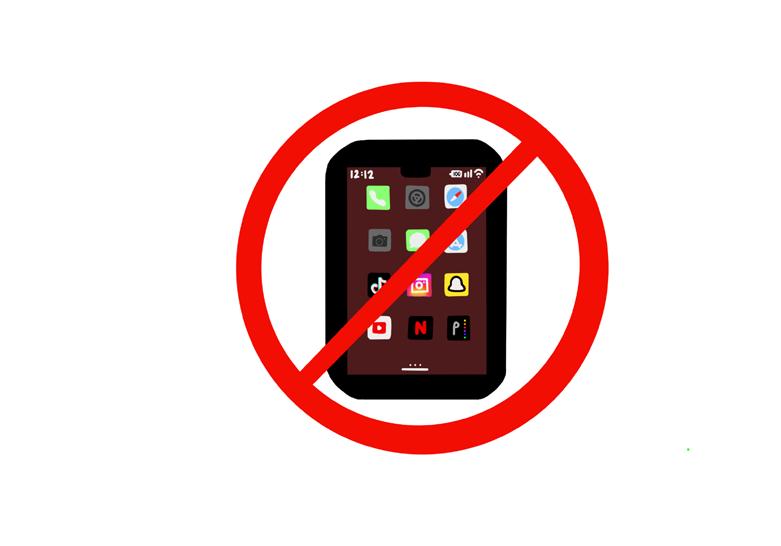
schools.”
He explained his motives behind striving for better excellence, starting with having ‘response-ability’ instead of responsibility, as students can only be as responsible as they can respond, and this accountability can be taught.
Responsible use of technology is the main goal around Pottsgrove: creating a better environment that mirrors reality. Superintendent David Finnerty described this as “having your head, heart, and feet all in the same place, which is intending on what you’re trying to do.” He explained the bigger picture as taking learning to the next level, putting just as much emphasis on classroom teaching methods by finding meaning behind each subject taught.
Beyond academic focus, cell phones have posed a significant threat to High school students in an-
There is less than a few weeks until Election Day, Nov. 5 — and political fever burns higher than ever. With the spotlight on former President Donald Trump and Vice President Kamala Harris vying for the presidency, another key battleground lies just within the borough of Pottstown, the 4th Congressional District of Pennsylvania, and the state as a whole. In Pottstown, voters will vote for either Democrat Madeline Dean or Republican David Winkler to represent Pennslyvania’s 4th congressional district this November. Dean has served as the district’s representative since Jan. 3, 2019. Dean has focused on issues such as healthcare, infrastructure and economic development. Winkler, on the other hand, focuses more on social security, energy, climate and education. Their job as representative allows them to not only contribute to local policy but also advocate for local beliefs at the congressional level in the House.
Another important battleground lies in the 2024 U.S. Senate elections. Though there are two spots in the Senate for the state of Pennsylvania, one is available this election season: Democratic senator Bob Casey, having held this seat in Senate since 2007 faces Republican candidate David McCormick for the seat.
One of Casey’s campaign targets is so-called “greedflation” or corporate greed. He promises that he will fight increasing living costs for families through corporate regulation. On the contrary, McCormick’s campaign states that he will curb inflation and ease the financial burden on working class families through fiscal conservatism and reduced taxes. McCormick’s campaign is particularly focusing on pointing out how Casey has fallen short of representing Pennsylvania. Casey has focused on persuading voters that he continues to fight for the state, leveraging his experience as a reason to vote for him.
State-level elections are also another key battleground that will determine Pennsylvanian policy. The GOP currently controls the Pennsylvanian Senate with a margin of 28-22, while Democrats continue to cement control over the House and Governorship.

The Democratic party hopes to reach a legislative “trifecta,” controlling the House, Senate, and the Governor. If this were to happen, the Democratic party would be able to further advance its agenda on advancing abortion rights, establishing a higher minimum wage, and enforcing stricter gun laws. Republicans will have to either hold the Senate or take back the House (held by a margin of 101-100) to maintain an influential hold in the Pennsylvania legislature. This would allow them to protect their agenda on pushing lower taxes, slowing down inflation, and suppressing crime.
Pennsylvania Attorney General is another position being elected this November. The Attorney General is the “top law-enforcement official” in the state with a variety of responsibilities ranging from criminal cases to civil law. Dem. Eugene DiPasquale will run against Rep. Dave Sunday. Both seek to validate their parties’ legislative agendas through the courts and specify the applications of laws enacted by legislators.
Voters will head to the polls on Tuesday, Nov. 5th to elect officials for these positions and those in the federal government. While many will be laser-focused on the presidential race, those who stay informed on their community and understand their local races can have a large impact on their community.
By ABIGAIL RICE ’26
SOCIAL MEDIA MANAGER
We have all seen political advertisements on YouTube, with each candidate pointing out a “flaw” in their opponent or their plans. From climate change to their economic policies, Harris and Trump have very different visions for what the next four years would look like in the United States under their presidency.
CLIMATE CHANGE
The climate change policies between Donald Trump and Kamala Harris diverge greatly. Harris believes climate change poses a severe threat, and supports the Paris Climate Agreement which focuses on preventing any increases in global temperature and carbon emissions. Harris also supports the Inflation Reduction Acts, which provides investments in the form of tax credits for electric vehicles and loans to companies to entice a switch to technology that will maintain clean energy. Conversely, Trump has said, “The global warming hoax, it just never ends.” Trump is against the Paris Climate Agreement and believes that any mandates that favor electric cars will worsen the United States economy. Trump supports coal, oil, and natural gas industries and hopes to remove any federal regulations hindering their expansion.
FEMALE REPRODUC-
In both of the debates in 2024, abortion and female reproductive Rights remained a very controversial topic. In 2022, Roe v. Wade was overturned. Roe v. Wade gave legal access to abortions for women roughly 23 weeks into their pregnancy. Trump, as indicated in his previous presidency, does not support abortions, and held a part in the overturning by the Supreme Court. He claimed to believe the decision to legalize abortions should be left to the states and they should define their own rights on abortions. However, during an interview, when Trump was asked, “Do you believe in punishment for
abortion, yes or no, as a principle?” Trump responded, “For the woman?” and continued to answer, “Yeah, there has to be some form.” Despite his clear dislike of abortions, he is slightly inconsistent. On the flip side, Kamala is in favor of reinstating the previously overturned Roe v. Wade as a legal standard. During the September Presidential Debate, Harris said, “I pledge to you when Congress passes a bill to put back in place the protections of Roe v. Wade, as president of the United States, I will proudly sign it into law.” Harris has also pledged to safeguard access to contraception and other fertility treatments like IVF.
Taxes, tariffs, and inflation have consistently been of top concern for voters in the 2024 Presidential Election, and both Harris’s and Trump’s economic policies have a heavy weight on their election turnouts. Harris promises to push for the creation of credits for first-time home purchases and hopes to prevent companies from illegally price gouging which eventually may lead to inflation of prices. She has expressed her aversion to tariffs, asserting that it will increase the price of products bought by Americans. While Harris’s plans are broader, she has said that she plans to expand and continue the proposal of the Biden Administration. Trump, on the other hand, plans to use federal lands for housing. Trump would like to utilize the Federal Reserve to create lower interest rates. Additionally, he plans to establish tariffs on Chinese imports and another lesser tariffs on foreign imported goods.
Conflicts between Russia and Ukraine have been occurring for many years, but in February of 2022, Russia invaded Ukraine. This sent ripples all throughout the United States, and may still play a part in the election between Harris and Trump. Harris is in total support of Ukraine, expressing her belief that a victory for Russia will only encourage Russia to challenge NATO countries. If this
ever happened, NATO would be required to fight against Russia. Harris plans to follow the Biden administration’s approach in continuing the United States’ support of Ukraine. Trump claims a different strategy with Ukraine and Russia. He wants the financial support given to Ukraine to be in loans rather than grants. In general, Trump is not specific to whom he supports but has explained that he would tell President Zelenskyy, “No more. You got to make a deal.”
While the Israel-Hamas War may not be as powerful of a deciding factor for the voters unlike inflation, abortions, or immigration, any decision for the Israel-Hamas War will be left in the hands of the President. Harris has commented on the current situation explaining that she believes Israel has a right of defense, but she also
sympathizes with Palestine because of the many civilian deaths caused by Israel’s military attacks. “We must have a two-state solution where we can rebuild Gaza, where the Palestinians have security, self-determination, and the dignity they so rightly deserve,” Harris said. She disagreed with Israel’s humanitarian situation in Gaza and in March called for a cease-fire. Conversely, Trump is more supportive of Israel, although he criticizes their strategies and Netanyahu.
Immigration and Border Security debates are nothing new in the United States and, like any year, each candidate’s perspectives will have a heavy weight on the election’s turnout. From Trump’s perspective, a wall at the border seems necessary in order to curb illegal immigration
through border crossings. He has suggested that all foreign graduates should be offered a green card. “What I will do is, if you graduate from a college, I think you should get, automatically as part of your diploma, a green card to be able to stay in this country.” Harris supported the bipartisan bill which is directed at expediting immigrant deportation and making it more challenging to seek asylum. She also plans to raise border resources which serves as a key point in her campaign, and she promised to sign these policies into law.
In this upcoming presidential election, it is crucial to analyze both candidates’ contentions and policies because the decisions made in this 2024 election will affect everyone living in the United States for the next 4 years and into the future.

By AMBROSE COLE ’26
OFF-CAMPUS EDITOR PRESIDENTIAL
The 2024 election has seen an interestingly formatted presidential debate: for the current election cycle, both presidential candidates have agreed to debate only once in this election year, doing so outside the jurisdiction of the Commission on Presidential Debates in a precedent-breaking decision. Trump and Harris met on September 10th for this debate with crucial political issues such as the economy, immigration, and abortion on the docket to be discussed. Both sides reiterated points from their platforms throughout the debate, rarely taking questions headon and challenging the effectiveness of each other’s administrations.
Trump’s criticisms of the Biden-Harris administration often centered on significant negative world events such as the continuation of the Covid-19 pandemic, widespread inflation in the U.S. and the start of conflicts in Ukraine and Israel. In return, Harris countered by citing the mishandling of the nation before 2021 as the source of the current administration’s shortcomings, labeling Trump’s policies on Covid-19, world politics and the economy as contributing to a subpar situation faced by the Biden administration before the outbreaks of inflation, international conflict, and other woes.
A few statements from both sides of the debate became popular online soon after the debate’s airing, receiving criticism and in some cases appearing as memes on platforms such as TikTok. Trump’s debunked assertion that migrants in Ohio have been “eating the dogs” and consuming pets in immigrant-flooded communities was highly contested by online media. Trump’s claim to have a “concept of a plan” for the American economy was mocked by left-leaning satire creators on TikTok and beyond.
Conversely, Harris was harshly criticized online by right-leaning news outlets for her seemingly inconsistent stances on fracking and the Gaza conflict, seeking to change both subjects when pressed by debate moderators.
Polls saw little change after the broadcast, with Harris’ 3-point lead in New York Times polls remaining just as before the debate.
VICE PRESIDENTIAL
Far from resembling the presidential debate a few weeks prior, the vice-presidential debate held on October 1 was defined by discussion and a significant number of agreements by both sides surrounding key issues.
Both Democratic candidate Tim Walz and Republican JD Vance used the stage as an opportunity to expand upon and clarify – in some cases rectifying – the statements made by Harris and Trump surrounding their platforms.
While controversy arose during the debate surrounding the moderators’ muting of mics and fact checking, Walz and Vance collectively outlined a set of issues facing the United States, such as an influx of undocumented immigrants and high inflation, and agreed on aspects of how such issues should be fixed.
Rather than taking aim at one another, both vice presidential candidates focused their criticisms on the presidential candidate of the other party, drawing firm lines between the members of the ticket and echoing each presidential candidate’s concerns surrounding his/her opponent.
A primary issue of the debate was immigration, frequently incit-
ing passionate statements from both sides. Walz and Vance consistently highlighted the high number of border crossings under Joe Biden as a problem for the nation but differed on claimed effectiveness of each administration’s proposed solutions.
While Vance attacked Walz for the influx of border crossings under the Biden administration, Walz countered by claiming Donald Trump was responsible for shutting down legislature that would have secured the border, a stated aim of the former president. This heated portion of debate culminated in Walz targeting Trump’s statements about migrants eating pets in Springfield, Ohio, further scrutinized by debate
moderators during a fact check. Walz faced scrutiny of his own from the broadcaster, as the moderators requested he address his questionably factual stories of being in Hong Kong during the Tiananmen Square Massacre. He responded by recognizing the mistake and claiming to sometimes be a “knucklehead.” Polls regarding the vice-presidential candidates’ relative popularity saw minor change after the debate, but both candidates notably gained large increases in favorability ratings and were far more likely to be labeled as “reasonable” by the public than the presidential candidates.
By ADAM YAO ’26
ARTS AND LEISURE EDITOR
Hill has always been a place where students can be informed and have civil discussions about the world outside of Hill, and that had been the objective of the Young Democrats and the Young Republicans clubs of the past, to varying success. Many people have raised objections to the reintroduction of these groups, and some Hill students are concerned that their presence may polarize the student body even further. However, with new leaders and new ideals, others are excited about what the future of these clubs might hold. In order to learn more about these two clubs and their objectives and goals, there were two interviews conducted, one with the leaders of the Young Republicans club and one with the leader of the Young Democrats club.
According to Constantine Kontes and Lauren Kuppinen, the co-presidents of the Young Republicans Club, they want to “build a community where people feel safe and protected, a place where people can disagree but disagree in
a civil and polite way.” In their minds, the worst outcome that could possibly happen due to their club is if it damages relationships due to politics. In terms of legacy, they want to leave an impact that will last beyond this election year and hopefully have the club continue for multiple years even after they leave. The Young Republicans are focused on the future, with leaders in the younger forms, such as fourth formers Louis (Quin) Zuegner (communications manager) and Henry Krafczek (social media manager). They have multiple events lined up in store, including trying to get guest speakers to speak at Hill, which, in their words, include “big name people, people you’ve seen or heard on TV.”
The Young Democrats also share a similar sentiment in terms of impact and legacy. Young Democrats leader Hilton Johnson emphasized giving people a voice to speak up about their beliefs and be more educated on political topics. He believes that this club is a perfect avenue for “more people to start dialogue and learn to be politically literate.” The Young Democrats club plans on supporting the Harris campaign in a variety of ways, even going door to door
or helping count ballots on election day. Their overall goal and legacy they want to leave is to “give people their strength and teach agency in their lives and champion their own opinions.”
From the interviews with both clubs, what was most fascinating was not their plans or ideologies, but how much they shared in common. Both groups were focused on not leaving a partisan impact on Hill, on opening dialogue instead of shutting it out. In fact, both parties were interested in having shared meetings, a place where people from anywhere on the political spectrum are welcome to share their beliefs and feel respected and validated. In a time where political divide and polarization run rampant, this year’s Young Democrats and Young Republicans shine a beacon to a more empathetic future.
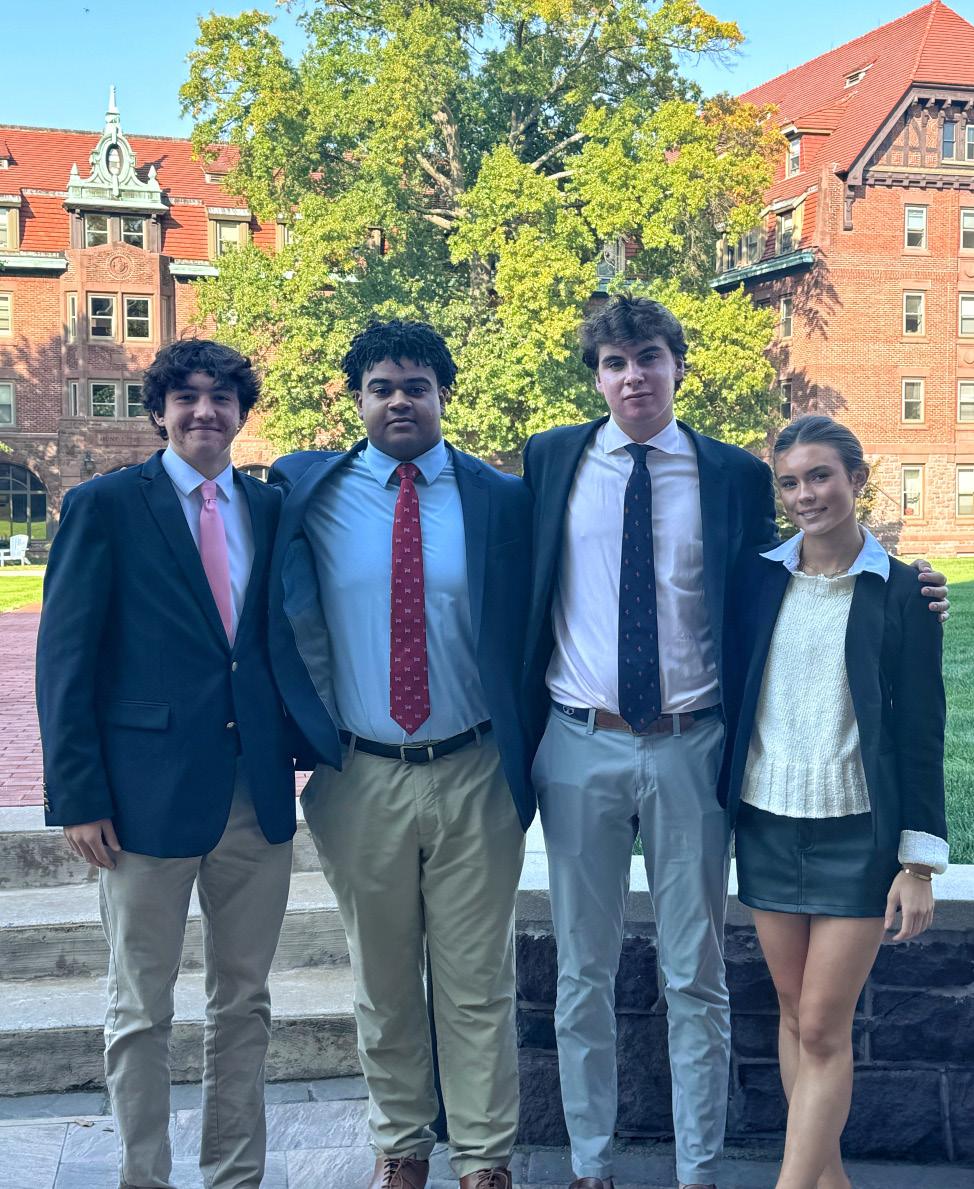
Politics can often be perceived as too controversial or sensitive for a high school campus. The Young Democrats and the Young Republicans clubs are two political organizations at Hill that foster a safe, yet dynamic, environment for political discussion, and enable students to openly discuss their political opinions. Both Hill’s political student clubs work toward fostering a healthy environment for political discourse and behavior that are essential to the continuation of a diverse school.


The Young Democrats Club proudly endorses Kamla Harris for President of the United States. She is the leader we believe America wholeheartedly needs in a critical election where human rights, bodily autonomy, financial equity and freedom, and the future of our great nation hangs in the balance.
A leader who has shown her willingness to uphold the integrity of our democracy, to serve the best interests of all Americans in her heart, and push the United States of America forward in a time where so many are fighting for regression, we believe that Vice President Harris is fully equipped with the aptitude necessary for the grand undertaking that is president of the world’s greatest nation.
We believe in a nation where women are not betrayed by their government, where the working class is given policies that will strengthen them more than it will the wealthy elites of the country. We believe in a country where the foundation of our democracy cannot be destroyed, in any way, for personal gain. Given our beliefs, we recognize that Vice President Harris is our nations’ best choice in taking the steps necessary in forming the nation we believe all Americans deserve to live in.
We recognize the threat that Trump’s Project 2025 poses on the American people, and its appalling objective of undermining the democracy of our nation. Given the reality of this attack on our nation’s values and institutions, we implore everyone to join us in the battle for the future of our nation. We are fighting for a nation of prosperity and peace, and against one of political regression.
By CONSTANTINE KONTES ’25
By HILTON JOHNSON ’25 PRESIDENT OF YOUNG DEMOCRATS CLUB PRESIDENT OF YOUNG REPUBLICANS CLUB
The Young Republicans Club at the Hill School officially endorses Donald J. Trump for President of the United States, understanding that his leadership and policy will firmly support the best interests of our Great Nation in moving closer to the goals aligned closely with the Republican Party. We are fully committed to promoting Conservative values and supporting the candidate who champions the important values of economic prosperity, National Security, and ever-important individual liberties.
By ETHAN RYU ’26 STAFF WRITER
On June 19th, 2024, Nvidia Corporation overtook Microsoft for a day as the most valuable company in the world, with a market capitalization of $3.34 trillion. This tremendous feat marks only the latest of Nvidia’s figures regarding its skyrocketing valuation, which is undeniably attributed to the company’s position as a leader in AI data center chips and AI-powered software for audio and video processing. A supplier for major AI investments in tech giants such as Microsoft, Alphabet and Meta, Nvidia’s success signals the much greater idea of AI integration, infiltration, and immeasurable impact in a wide array of industries and fields. In the midst of the AI boom, another company became globally known as a spearhead of generative AI: OpenAI. Generative AI is, broadly speaking, artificial intelligence able to generate text, images, video, audio, and other data using generative models in response to prompts. While the technical aspects of transformer-based deep neural networks are of no concern to the average person, the applications of generating a text file or image out of a single sentence prompt seem endless, and it seemed many shared this sentiment, as OpenAI’s ChatGPT became the fastest-growing consumer software application of January
2023 with over 100 million users.
Along with ChatGPT, generative AI products such as the textto-image DALL-E and text-to-video Sora have been operated by users for optimized workflow, entertainment, and art, among other things. However, the quickly developing AI landscape presents a few notable concerns. Issues of regulation on AI development and use, job displacement, discrimination bias and cybercrime are salient problems within the rising AI wave, and how we deal with them determines the impact and ultimate future of AI.
From a regulatory lens, the rapid pace at which AI is developing strikes at the Achilles’ heel of many legislative systems, especially polarized democracies as many western nations are. Copyright is largely complicated by generative AI, both in the use of copyrighted material being trained for AI, and of copyright protection for AI-created works. A large group of AI developers claim that using datasets with copyrighted works for training their AI is protected under fair use, while copyright holders argue it infringes on their rights. These arguments are put into further scrutiny when, for instance, a generative AI creates a portrait that is a near replication of an artist’s, just with a few more fingers on the subject’s hands. Additionally, granting copyright to-
wards individuals using generative AI may unjustly give ownership of an item lacking human authorship.
Another large concern is of job losses and displacement. While technological unemployment is not a new concept, the advent of AI has placed additional pressure on many creative and qualitative-based employments. In April 2023, it was reported the AI boom removing about 70% of game illustrator jobs in China. Jobs from writing to voice acting now compete against AI in many areas of the world. The difference in cost and production speed creates a draw towards AI for companies, at the expense of potentially widespread unemployment and quality and authenticity of work.
Among the extensive list of other worries are discrimination bias in AI and cybercrime. A pitfall of generative AI is that it reflects the dataset it is trained on, and so in the cases of AI trained on certain communities, the items it produces reflect any biases in the group, causing racist text or heavily stereotyped images. In an effort by AI companies to combat this bias, AI can make some off-center results, as demonstrated by Google Gemini depicting the US Founding Fathers as people of color.
The negative impact for AI can carry on to criminal acts: The ability generative AI carries to create realistic fake content has been maliciously
By JAHIEM PRATT ’26 STAFF WRITER


David Jordan ‘25 - “300 Noches” by Belinda featuring Natanael Cano
“It’s a good song to sing, the vibe is good.”
Anabella Rascon ‘27 - “Beso(Fruat Fresca)” by Carlos Vives and Wakyin
“It transmits me to the beach, and it reminds me of my friends.”


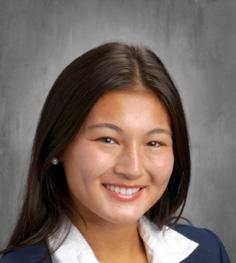

Sydney Saracene ‘25 - “The Last of the Honeybees” by Sam Burchfield
“Tied to a summer memory with my bestie.”
Claire Mauro ‘27“Sandpaper” by Zach Bryan featuring Bruce Springsteen
“Just like the vibes.”
Riley Savage ‘25“White Iverson” by Post Malone
“It fits any mood, in the shower it’s cool, in the fall it’s cool.”




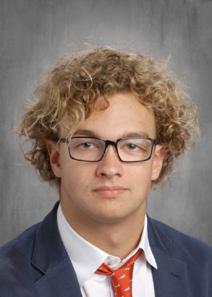
Matthew Flynn ‘25 - “Il Cielo in una stanza” by Mina
“A family friend loved playing the song, it brings good memories.”

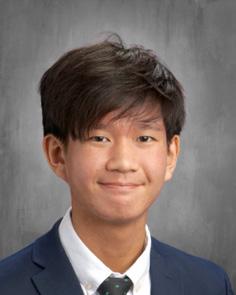

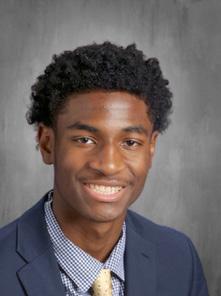
Max Menkowitz ‘26“Dreams and Nightmares” by Meek Mill
“Gets me prepped for my game”
James Gong ‘26“Howl’s Moving Castle” by Joe Hisaishi
“Very good for when studying.”
Max Tierney ‘25“Gracious” by Future, Metro Boomin, Ty Dolla $ign
“A song that helps me focus and calm down.”
Ethan Wills-Johnston ‘26 - “CYBER TRUCK” by Meek Mill
“Gets you hyped before practice.”





used for phishing, disinformation and fraud. Deepfaked video and audio can be held against an individual for actions they did not commit, and its existence makes it increasingly difficult for legal authorities to rely on footage as they have for decades. Additionally, hackers have found weaknesses in text-based AI that enable them to extract personal, harmful information behind safeguards. As AI grows in scale and influences our lives, its is increasingly imminent that necessary measures are taken by governments to mitigate these threats. In the end, AI is currently only in
its infant stages, and it still harbors “enormous potential for good and evil at scale,” as succinctly stated by UN Secretary-General António Guterres. As our technologies continue to advance, it becomes the duty and concern of the global population to consider the dangers of our winnings as much as their advantages. Social activism and regulation on these large companies like Nvidia and OpenAI may be the next steps towards a more secure future. AI as a technology will not go away any time soon, so the onus is on us to consider the usage of AI in our lifes.

By RICHARD LIU
Your childhood home is a place of ebbing summertime. Where branches of dense willows flow along a warm breeze, its thin leaves drift peacefully onto a familiar brick path. You walk past a pond, the gentle wind forms small waves across the surface, and you see a rusted bicycle in the murky waters.
You must continue. You must find her. You must remember her name. Childrenrununderthewillows,theyarealsoreducedtonothingbut shadows.Theymeannoharm,tooengrossedintheirafternoonplaytime to notice your presence.
The house had been rented out and turned into a nursery. What once was your own private playground is now shared by countless children. The wall where you used to draw now holds the markings of other children, memories of a communal childhood. You walk up the stairs and reach the living area, emptiness. You walk up another flight of stairs and reach a study. A thick layer of dust rests on a polished table surrounded by books. Did you have a third floor in your childhood home?
You continue up to the fourth floor and reach your neighbor’s living room.
Fifth floor, a zoo. You see a zebra with a scar across its hind leg, shadowy zookeepers stand behind the animal, looking at you with an intense gaze.
Sixth floor, a second-hand furniture store.
Seventh floor, poor imitation of the International Space Station. The entire floor is covered in aluminum wrap, big buttons that glow red with green hues blinking every now and then.

Brooks Bernabei ‘27“Little Things x Gypsy Woman (L BEATS MASHUP)” by Jorja Smith
“It reminds me of house music.”

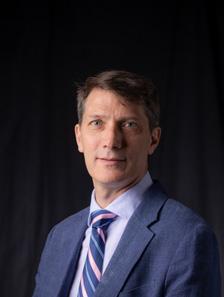
David Shefferman“She Is Mine” by The Pyschedelic Furs
“I saw them in concert, but they didn’t play this song. I put it on repeat whenever I drive. I used to listen to them when I was younger.”

Eighth floor, your childhood friend sits quietly in a chair amidst a sea of darkness. She is wearing a white dress. Her green eyes lock softly upon your gaze, and a faint grin slowly spreads across her face.”

By LEXI LUBCZENKO ’25 SPORTS EDITOR
The students who apply every term are disciplined. They have time management and independence that they channel in a way that is unmatched compared to other programs at Hill. Yoon Soo Lim, Oaklawn-Tuttle Director of Vocal Music, says, “Whereas in the classroom, where teachers can see your progress, You have to be disciplined enough to get yourself in a daily practice; I know I’m struggling in this area right now, and that I need to overcome that.”
Lim was not the only one who advocated for the students’ drive. Every overseeing faculty member that I spoke to about afternoon arts spoke about the same thing: needing the skillset and dedication to stay focused. This is why it is not an option to join afternoon arts after being cut from a sport or not receiving the role you wanted in the theater production.
Margaret Neiswender, Senior Master Teacher of the Arts, who is the Instrumental music director and evalutes afternoon arts application speaks well on the dedication of artists in the program: “They are driven by their own desire to be a better musician... they want to make sure that there is a space in their day that they can explore their craft and get better at it.”
Ellen Nelson, Senior Master Teacher of the Arts, explained to me how the afternoon arts program began only about 15 years ago, after coeducation at Hill. She emphasized the importance that the addition of the space held for advanced artists at Hill to develop their craft daily like athletes train daily for their sport. “This idea that you can do something in the arts that’s not athletic is relatively new...there were times in the history of The Hill School where you’d go out to the field and had no other option.”
Current afternoon arts student
Claire Bressi ‘26 spoke about the space afternoon arts has been for passionate artists like her, but also how having a lack of interest can keep others from the opportunity: “I’m currently having a ton of fun with the five of us doing it this fall, but I know that not many students are aware it’s even an opportunity. Due to this, entire terms have been cut in the past due to lack of interest. All artists who are passionate about their craft, no matter the skill level, should invest some time in talking to Mrs. Lim if they are curious about doing afternoon arts.” Lim mentioned this as well: “[Having] 2 or 3 students is too small to run.”
It would be nice to have a space for beginner artists to have a creative outlet after school. In a perfect world, there would be enough instructors to teach arts during the afternoons. Lim agrees: “But right now, with the current staffing, I
don’t know how that’s possible.” She expanded that there have and could be many student-run spaces for effective group practice and instruc-
tion, but afternoon arts is ultimately not the place for that – it is a sacred space for dedicated artists to develop amazing projects on their own.

By ELIZABETH RANKIN ’25 STAFF WRITER
Following the growing tensions from the upcoming election, several topics have been resurfacing again and again in political debates. One of which is the topic of reproductive rights, and abortion as a whole. However it has not always been this way.
In fact abortion was not seen as a political issue until the mid 1800’s. In fact, according to an article released by planned parenthood
“[In] colonial days, abortion was a regular part of life for women.” In fact abortion has existed practically as long as human beings. Even going back as far to the roman empire many women would drink or consume certain herbs to prevent pregnancy. This was a common practice even following into the 19th century with newspaper ads even advertising abortion remedies for women to take for unwanted pregnancies. While it was generally accepted and legal in most states, it was socially frowned upon, however there was no motive
to pass regulations on the practice.
So when did this mindset around abortion change into the political debate it is now?
In general, abortion had been ignored or seen as generally accepted in the United States prior to the Civil War. This is partly due to the lack of male obstetrician-gynecologists of OB/GYN’s, but additionally to the demographic of the women getting abortions during this time. According to planned parenthood, enslaved women were the most common demographic to get an abortion. Due to the fact that they were valuable property; because if they were to give birth to a child, the child would automatically be property of the owner of the slave; hence, southern lawmakers began to put restrictions on reproductive rights.
Following this beginning of regulation of reproductive rights, the first true anti-abotion movements began. These movements were much like they are today with strong religious and moral concern. As a result be-
tween the years of 1860-1880 more than 40 new regulations and bans on abortion were passed. Fast forward to the early to mid 1900’s, according to John Hopkins, in almost all states and territories abortion had been deemed illegal. However this did not stop women from receiving abortions, nor doctors from performing the operation. In fact, between the 1950s and 1960s, an estimated “1.2 million illegal abortions were performed each year in the U.S., according to the Guttmacher Institute” By abortions being illegal, it only prevented lower class women from receiving abortions; those who wanted an abortion were still able to receive an abortion if they were able to pay. Women who could afford it began to fight for abortion rights for cases where their lives would be endangered. This set off a frenzy of new abortion reforms, eventually ending in the supreme court decision in Roe Vs Wade in January of 1973 allowing women full autonomy over the choice to have an abortion.

Editors-in-Chief
Visual Managing Editors Public Editor
Michelle Lawrence ’26
Campus News
Off-Campus News
Features Layout
Ambrose Cole ’26
Ryan Qiu ’26
Abigail Rice ‘26
Staff Writers & Staff Contributers
Emerson Leger ’25, Kiern Lim ’25 Caylie Zigner ’25, Rachel Hwang ’25 Evan Luo ’25
Online Editor Opinion Arts & Leisure
Sports
Head Illustrator Social Media Manager
Vicky Zhang ’26
Deric Choi ’26
Adam Yao ’26
Lexi Lubczenko ’25
Taylor Timbrook ’26
Abigail Rice ‘26
Kara Finley ’26, Anaika Bandi ’27, Richard Liu ’26, Ethan Luo ’26, Sienna Licata ’25, Ethan Ryu ’26, Aria Li ’28, Grace Carroll ’26, Harper Latham ’26, Elizabeth Rankin ’25, Casper Hao ’27, Jahiem Pratt ’26, Chelsea Lee ’26, James Gong ’26, Lillian Cheng ’27, Joseph Terreri ’26
Faculty Advisers Alec Swartz, Nancy Body
Content Policy
The Hill News is the student-run newspaper of The Hill School. Content is determined by and reflects the views of the student editorial board and staff and not school officials or the School itself. The Hill News acts as an open forum for student expression where they have complete control over the content produced.


Want to contribute to The Hill News? Come to our weekly meetings TBA or contact a member of our staff. To submit a letter to the editors or an opinion piece, email klim25@thehill.org eleger25@thehill.org eluo25@thehill.org


@hillnews @TheHillNews1 thehill.news /whatsoeverthingsarenews
Which eventually gets overturned in 2022, leaving the decision of abortion rights again to individual states rather than the individual woman. Throughout United States History opinion on abortion has been ever changing. With periods of acceptance as well as periods of disapproval. However it has never been as strong as a spotlight as it is now with the 2024 election right around the corner. This election could change the United States and what it would look like for millions of Women across the country.

Why is ice cream missing from the
By CHELSEA LEE ’27 STAFF WRITER
Some students may have noticed that the ice cream fridge in the dining hall pantry has been removed. I do not understand why. We pay 70 thousand dollars in school tuition every year and the all-inclusive cost only gets free dining hall meals. Technically the food is not free, since everything is included in the tuition. So nothing we get from Hill is “free.” We deserve the ice cream and should not have to pay extra for it.
Last year, the Hill community had choices in what type of dessert to have, whether we wanted a cold treat or not. While the choice is still there, one dessert staple from last year is missing: Ice Cream Bars. This year, they have been taken away from us. While occasionally, the dining hall will serve soft serve with various toppings, but it is not an everyday occurrence like what the ice cream
bars were in the ice cream cooler. The cakes, sweets, and even the soft serve satisfy me except I am constantly wishing to have more options. What makes it worse is that now ice cream from the campus store costs money. First, it is not as accessible as before, and second, I do not know anyone who is willing to pay for just packaged ice cream once free in the dining hall. The Grille also offers ice cream and frozen treats, so why would a student choose packaged ice cream over the ones in the Grille?
I have heard that financial aid students do not receive monthly grille cards anymore, now they are not even able to get free ice cream during meals. That is unfair, that they have taken the Grille cards and also added the price of the ice cream. The Dove chocolate ice cream bar costs around $2.99, while Target sells 3 bars for $5.39 meaning $1.80 each. Hill is overpricing the ice cream, and making us pay more. This is just unnecessary.

By JOSEPH TERRERI ’26 STAFF WRITER
After an early win in the season, Hill football remains in positive spirits despite several subsequent losses and setbacks.
With a 1-6 start, Hill football remains poised to yet another losing season that would continue a streak dating back to 2010. After dominant seasons in the late 2000s, Hill football has found themselves in a slump, posting a record of 22-89 since 2011.
“Honestly, not good,” quarterback Charles Hewitt ’25 said after being asked about the reputation of Hill football both around campus and the area. “Right now, I think we aren’t doing the right things to bring in the right guys or do the right things to win.”
It is no secret that Hill football has not had a winning reputation among Hill’s campus. Many students look at the Hill football program with frustration, leading to some morale issues inside the locker room.
“It does put a toll on us. It does bring us down a little bit,” receiver Nick Cobb ’26 said. “We know to just block the negative perspectives and just keep pushing.”
Blocking negative perspectives is extremely hard for any team of
any sort. However, it is evident that these perspectives have made their way into Hill’s locker room over these past couple years and has provided a sense of urgency to change the narrative. This attempt at change began in 2022 with the hiring of new head coach, Mike Boyer.
Boyer joined the Hill, following his departure from Albright college where he spent 13 seasons. “I am truly grateful for the opportunity to carry on the well-established tradition of this historic football program, and now lead the young men who represent it,” Boyer said. While his first season may not have been a success according to Hill’s 1-7 record, it is clear to his team that his arrival on campus has propelled Hill football into the right direction.
“I think it’s going well,” Hewitt said. “It’s obviously difficult as a firstyear head coach to bring in the guys, especially when they hire you late in the recruiting cycle. Second year he has definitely brought in some guys.”
Praise for Boyer has extended far beyond his starting quarterback. “I can see that Hill football is on the come up and they’re making the efforts to improve their program,” Anderson Brndjar ’25, head of Blue Crew, said. It is evident to both the team and the community that Hill foot-
ball is well on its way to turning this whole thing around and getting back to the winning seasons and championships they had throughout the 2000s. The coaching change of Boyer has brought new life into the locker room and has started to bring revival to what many saw as a depleted culture in the program.
“From my perspective, I definitely see us as a hardworking team,” Cobb said. “I feel there is a lot behind the scenes that we do. We do watch a lot of film. We do put the hours in.”
As players start to buy in the way Cobb has, the turnaround of this program will take more and more steps forward. Despite some extremely close losses early on in the season, with a 40-43 loss to The Pennington School and 43-45 loss to Peddie School, improvement is apparent. The culture Cobb is talking about has shown up on the field coming back from large deficits in multiple games.
While Boyer has been busy working on the culture of the team, he has simultaneously built an exciting young core. Cobb, Nate Govan ’26, Rojan Tiagi ’27, and Chase Mccusker ’27 were the four players mentioned by Hewitt as the leaders of the future. All current starters this year, these four are players with the potential that can help to lead
successful Hill teams in the future.
After a 1-6 start to the 2024 season, it is unlikely that Hill will come back for a winning season to end its 13-year slump. However, the progress made leaves the program and community hopeful for Hill to turn this
thing around in the coming years. “We’re gonna come back,” said Cobb. “We’re gonna win more games. We’re gonna really put the work and effort in. From now on, there’s gonna be a big change in Hill football.”
By LULU ZHOU ’26
& KATE JUNG ’28
STAFF WRITERS
A new co-curricular program was introduced to Hill this fall. Game management is a new program offered for all three terms. This program allows students who are passionate about sports media and journalism (or just Hill Pride) to contribute to Hill Athletics by creating and managing content for social media pages and Hill’s website. Students in the program also have chances to interview student-athletes and coaches, as well as capturing photos and videos of students in-action during home games.
Additionally, students will learn the basics of sports management here. It would be an especially great steppingstone for those who want to study sports marketing or sports management in the future. Samuel Rhinehart, Engineering Fellow, stated that “It’s a lot of working with social media, writing sports art, like sports journalism articles. And then we also have technical area, some students would go around the clock for games and similar things. I think the way students can learn more about this program is just to keep an
eye out, like a lot of the Hill Athletics posts are from this new program.”
This new program is separated into several sections, each student will cover multiple sections in each term. One current student participant of the program has said, “It’s something new, definitely different than what I’m used to doing, especially very different from being a regular sports manager where you only focus on one sport.” There will be programs where students go to home games to capture photos and videos used for social media. During afternoon activity time, students will mostly focus on weekly podcasting, interviews with athletes and coaches, and graphic design creation during days when there are no home games. Occasionally, students may even be tasked with managing the game clock during matches, providing hands-on experience in sports event operations.
This program is perfect for students who want to be involved in athletics but not by physically playing. As there are more and more interested students, The Hill School feels strongly to add this as part of the co-curricular programs. As Elle O’Brien, Assistant Director of Athletics for Sports Performance,
has said, “We hope to recruit passionate students who want to tell the story of athletics at Hill. We are looking for creative students who want to showcase their talents and interests.” Students who join the program during the fall term will work directly with Rhinehart and have support from all athletic directors, and Athletics and Arts Information Director Maddie Csernica.
The program aims to get Hill students who enjoy sports to be engaged with all sports programs at Hill, even in their off-season. The goal of this program is to have a group of students to assist with content creation across many different platforms, social media, podcasting, broadcasting, and more. The directors hope that students will eventually find a specific platform they enjoy and can then create content they are passionate about it. Students have said, “It is definitely a great opportunity to dive into realms of sports and social media and journalism.”
O’Brien hopes game management is formed by students engaging in and enjoying sports. The main long-term goal of this program is to form a group of people interested in content creation across platforms
like social media, broadcasting, and podcasting. O’Brien wants the game management team to grow to become “their own independent media team that broadcasts” and become champions of Hill athletics. Additionally, this would help the students in sports marketing or sports management. Looking forward, the directors hope to get a “broadcasting crew off the ground to broadcast our games on the livestream.
In conclusion, this is a brandnew program that is open to all students who want to be involved in Hill athletics. It provides endless opportunities for students to explore the depths of sports management and sports marketing in various platforms that can help students to learn and thrive in this new area.
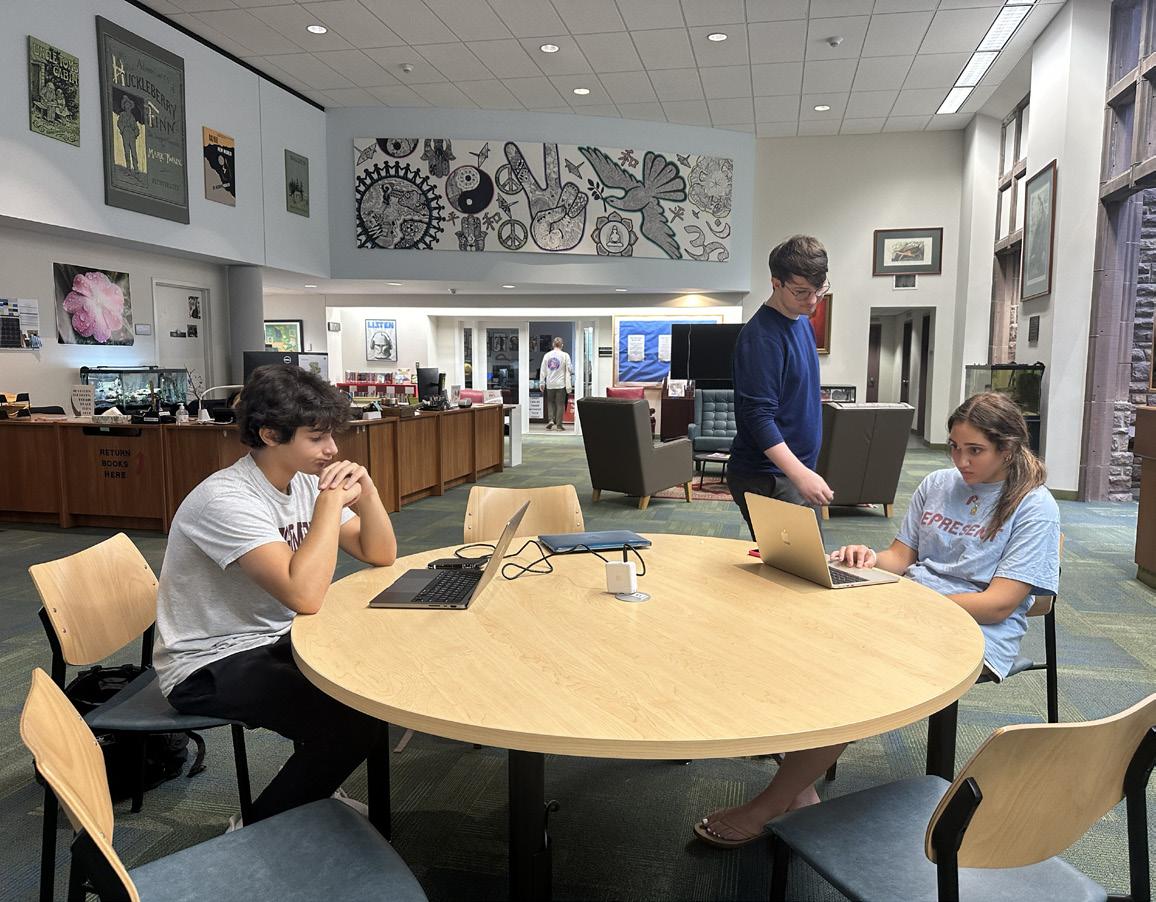
By JAMES GONG ’26 STAFF WRITER
It’s easy for students to forget how much the faculty at Hill really do. Most times, we walk out of class or leave practice and don’t see them again for the rest of the day. Maybe we’ll bump into them in the dining hall or pass by them while on a walk, but sometimes they just seem to disappear into a different life.
When we don’t see them, faculty have a lot more responsibility than we can see. Take Parents’ Weekend. Nice event, right? The school is on display for our parents, and they are shown the best parts of Hill. But behind all the wine tasting and classes, there are dozens of teachers and faculty working tirelessly, setting up those nice scenes
and keeping everything in order. It’s not as if the school beautifies itself.
“You figure out the best way to get into a rhythm, no different from a student figuring out their balance. It just comes with experience.”
— Ari Baum
Turns out, that’s the point: we are not supposed to see the work. When interviewed, Ari Baum, head coach of girls ice hockey, said “there’s a ton of behind-the-scenes work to make the school function well, and most of that work results in us not noticing anything - which is the goal. The goal is for you to go to sleep and feel like the temperatures are normal. The
goal is for you to do well in your classes and be happy, but a lot of not noticing these things takes a lot of work.”
That begs the question: how do faculty manage all of this? How do they both do all this work and make it seem like it never even happens?
Baum continues: “you figure out the best way to get into a rhythm, no different from a student figuring out their balance. It just comes with experience.” With enough time, the job only gets easier and more natural.
Although everything the faculty at Hill do isn’t always visible, we always see signs of and benefit from their work. Whether it’s a carefully thought-out lesson plan or a fun family night activity, there is no doubt the faculty work hard to keep the school up and running.
